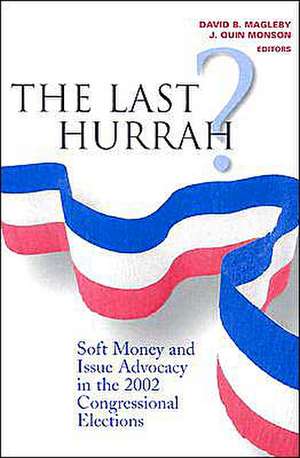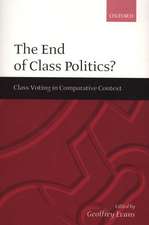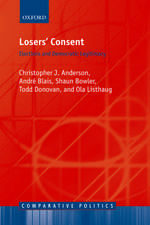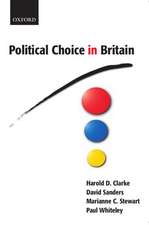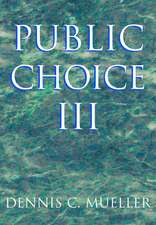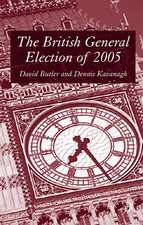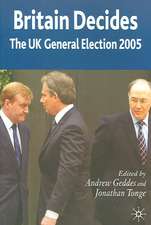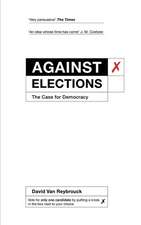The Last Hurrah?: Soft Money and Issue Advocacy in the 2002 Congressional Elections
Editat de David B. Magleby, J. Quin Monsonen Limba Engleză Paperback – 8 apr 2004
The 2002 midterm elections were noteworthy U.S. congressional campaigns for many reasons. They marked the last national contests before implementation of the Bipartisan Campaign Reform Act (BCRA) and thus were expected by many to be the "last hurrah" for soft money. These midterm campaigns provided a window on the activity of parties, interest groups, and political consultants on the eve of BCRA, as they prepared to enter a new era of American elections. The results of Campaign 2002 were remarkable. As the party in power, the Republicans defied history by gaining seats in both houses of Congress, giving them a majority in the Senate. To some degree this resulted from the GOP's new emphasis on "ground war" voter mobilization. Another key was the unusually aggressive support of the sitting president, who leveraged his popularity to advance his party's candidates for Congress. Th e Last Hurrah? analyzes the role of soft money and issue advocacy in the 2002 battle for Congress. Having been granted access to a number of campaign operations across a broad array of groups, David Magleby, Quin Monson, and their colleagues monitored and documented a number of competitive races, including the key South Dakota and Missouri Senate contests. Each case study breaks down the campaign communication in a particular race, including devices such as advertising, get-out-the-vote drives, "soft money" expenditures, and the increasingly influential role of the national parties on local races. They also discuss the overall trends of the midterm election of 2002, paying particular attention to the impact of President Bush and his political operation in candidate recruitment, fundraising, and campaign visits. Magleby and Monson consider an important question typically overlooked. How do voters caught in the middle of a hotly contested race deal with—and react to—a barrage of television and radio ads, direct mail, unsolicited phone calls, and other campaign communications? They conclude with a look to the future, using the trends in 2002 to understand just how candidates, political parties, and interest groups might respond to the new campaign environment of BCRA.
Preț: 233.04 lei
Nou
Puncte Express: 350
Preț estimativ în valută:
44.61€ • 48.47$ • 37.49£
44.61€ • 48.47$ • 37.49£
Carte tipărită la comandă
Livrare economică 21 aprilie-05 mai
Preluare comenzi: 021 569.72.76
Specificații
ISBN-13: 9780815754374
ISBN-10: 081575437X
Pagini: 288
Dimensiuni: 152 x 229 x 22 mm
Greutate: 0.45 kg
Editura: Brookings Institution Press
Colecția Brookings Institution Press
ISBN-10: 081575437X
Pagini: 288
Dimensiuni: 152 x 229 x 22 mm
Greutate: 0.45 kg
Editura: Brookings Institution Press
Colecția Brookings Institution Press
Notă biografică
David B. Magleby is dean of the School of Family, Home, and Social Sciences at Brigham Young University, where he is also a professor of political science. He is the editor of Financing the 2000 Election (Brookings 2002), and coauthor of Government by the People, which is now in its twenty-first edition. J. Quin Monson is assistant director of the Center for the Study of Elections and Democracy at Brigham Young University. His work has appeared recently in Political Research Quarterly and Political Analysis.
Descriere
The 2002 midterm elections were noteworthy U.S. congressional campaigns for many reasons. They marked the last national contests before implementation of the Bipartisan Campaign Reform Act (BCRA) and thus were expected by many to be the "last hurrah" for soft money. These midterm campaigns provided a window on the activity of parties, interest groups, and political consultants on the eve of BCRA, as they prepared to enter a new era of American elections. The results of Campaign 2002 were remarkable. As the party in power, the Republicans defied history by gaining seats in both houses of Congress, giving them a majority in the Senate. To some degree this resulted from the GOP's new emphasis on "ground war" voter mobilization. Another key was the unusually aggressive support of the sitting president, who leveraged his popularity to advance his party's candidates for Congress. Th e Last Hurrah? analyzes the role of soft money and issue advocacy in the 2002 battle for Congress. Having been granted access to a number of campaign operations across a broad array of groups, David Magleby, Quin Monson, and their colleagues monitored and documented a number of competitive races, including the key South Dakota and Missouri Senate contests. Each case study breaks down the campaign communication in a particular race, including devices such as advertising, get-out-the-vote drives, "soft money" expenditures, and the increasingly influential role of the national parties on local races. They also discuss the overall trends of the midterm election of 2002, paying particular attention to the impact of President Bush and his political operation in candidate recruitment, fundraising, and campaign visits. Magleby and Monson consider an important question typically overlooked. How do voters caught in the middle of a hotly contested race deal with—and react to—a barrage of television and radio ads, direct mail, unsolicited phone calls, and other campaign communications? T
